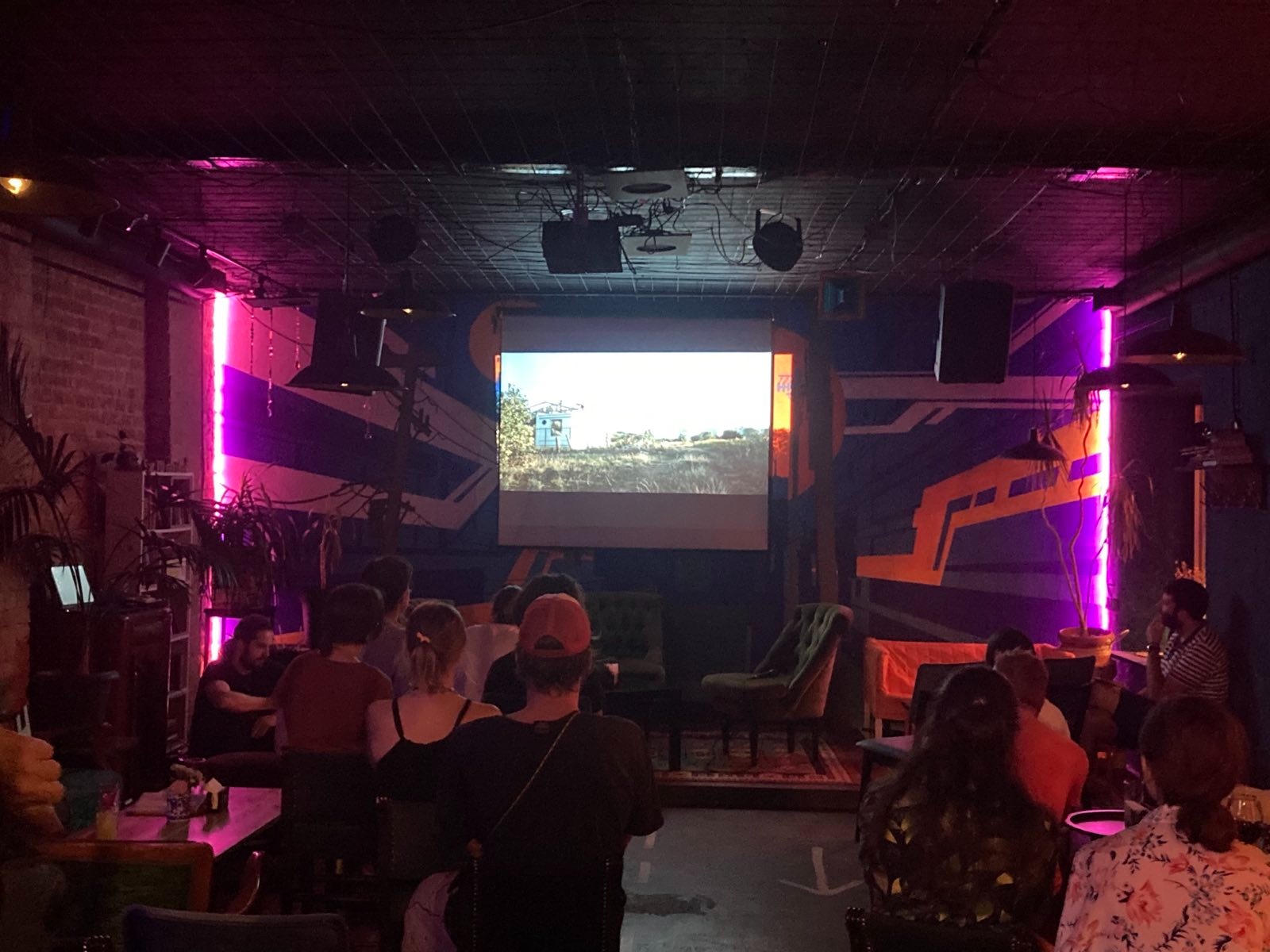“We have to reflect on the past”. CrimeaSOS held a screening of the Crimean Tatar short films and a discussion about the future of the peninsula
30 / 08 / 2023
On August 29, the NGO CrimeaSOS organized a charity screening of short films by Crimean Tatar directors and a discussion at Squat 17b in Kyiv.
At the event, four short films by Crimean Tatar directors Ernes Sarykhalil and Abdula Abdulaiev were shown: Veda (farewell), Ikamet (residence registration), Qısmet (fate) and Mıqlar (nails). After the screening, there was a discussion about the present and the future of the temporarily occupied Crimea.
Journalist and psychologist Mavilie Khalil, co-founder of the English to the East volunteer English language mentoring program Elzar Halimova and CrimeaSOS analyst Yevhenii Yaroshenko took part in the discussion.
We publish part of the discussion.
Mavilie Khalil
***
We have a lot of discussions ahead about how we see Crimea in the future. I think we have to start with honest conversations.
The issue of 2014 was not in the open discussion in Ukraine, in particular: what happened then? I heard a lot of mutual complaints. From the Crimean Tatars about why they were not protected. From ethnic Ukrainians about why they did not rise up. It seems to me that these questions arise due to a misunderstanding of what was happening in Ukraine at that time. There was a Maidan, and in fact the country was left without executive power. And the Crimean Tatars, 11–12% of the population of the peninsula, were unarmed, and besides, they always chose non-violent struggle.
Due to the fact that we have not yet discussed these topics, we have a lot of stereotypes, claims and myths. All this still lives in us and is reinforced by russian propaganda. Until we initiate these conversations, we cannot talk about the future of Crimea, what we would like it to be. We have not yet reflected on the past.
***
During the events of 2014, I worked on television, covering the events. We have had several searches. Now, I understand that I haven’t talked about it, haven’t raised the topic. Especially about how we survived it and how we coped with it or did not cope with it.
It seems to me that we, Crimean Tatars, live in our own internal prison, because the politics of intimidation is very difficult. It left its mark on us in Crimea. So now I realize that I am not a free person, even in a free country. I am very confused by this. Thus, I believe that we need to talk about it, and only when we reflect and get to know each other, we will be able to understand how we see the common future in Crimea.
Elzara Halimova
***
Speaking up is very important. It did not exist in Crimea even before the occupation, it was limited to certain stereotypes, some of which were negative, but this, of course, is my personal experience.
In 2010, I moved to Kyiv. For us then, it was enough to get on the 12 or 28 train for UAH 72 for a ticket with a student discount — and we were in Simferopol. Then there were no problems to enter university and move at the age of 16, because we all lived in the same country.
In 2015-2016, the Qirimda yaşa (Live in Crimea) debate appeared in Crimea, and disputes began among Crimean Tatars about whether to stay in Crimea or leave. And I left a long time ago and could not understand which group I belonged to and what was happening. Therefore, even in the Crimean Tatar community among themselves, there are a lot of unsolved questions related to the occupation and life in it, how people survived the year 2022. There are some unspoken things and questions.
***
When it comes to the future, I associate it with freedom in every sense of the word. Do I want to live in Crimea? I want to live in Crimea, in Kyiv, many places. Another thing is that I would like to come to Crimea freely, to have my home accessible, like it was before 2014. Now we live in a globalized world and we can choose where to live. But the concept of fatherland and access to it is very important.
***
What should Crimea be like? It must be free. With the opportunity to speak freely and express one’s position.
Yevhenii Yaroshenko
***
How will the deoccupation of Crimea take place? The leadership of Ukraine knows better whether this will happen by political, diplomatic means or by military means. I remind you that Ukraine, as a victim of aggression, is not limited exclusively to peaceful means of deoccupation of all territories within the scope of the exercise of the right to individual self-defence.
Would I go to Crimea after the return of the Ukrainian flag over the peninsula? I regret that until 2014 I had rarely been to Crimea. I’ve been looking and reading a lot recently about various cultural sites and was amazed at the variety of sites that date back to the 14th century. They contain the centuries-old history not only of Crimea or Ukraine, but also of all of Europe.
I understand that I will be able to see this only when the territory of Ukraine is freed from the occupiers. This, and not only, encourages me to support the armed forces.
But it is worth remembering that after the deoccupation of Crimea, not only palaces, the sea, mountains and museums will open before us, but also a huge layer of problems that need to be solved. First of all, there is the question of restoration of violated rights during the occupation, return of illegally seized property, etc.